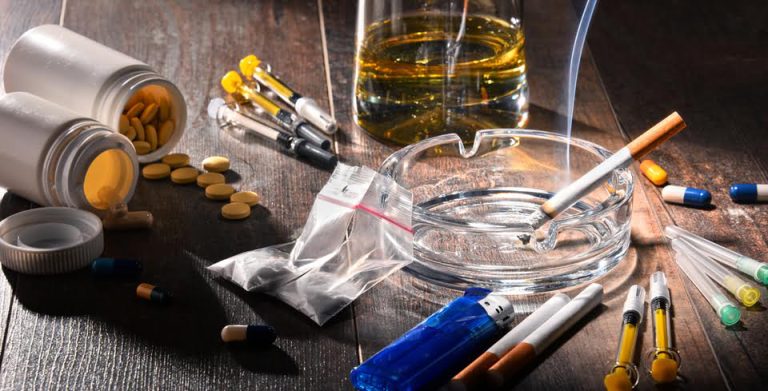During the first 12 to 48 hours of detoxing from alcohol, people may experience withdrawal symptoms that include diarrhea, loss of appetite and vomiting. These symptoms can affect nutrient intake, electrolyte balance and fluid preservation in the body. If you quit drinking and are hungry all the time, you’re not alone. It’s common to begin craving sweets and other unhealthy foods when you give up alcohol. Trouble sleeping is common after you stop drinking, especially early in recovery.
- A well-balanced diet is important to build up your vitamin and nutrient stores and keep you healthy during the recovery process.
- You can opt for a multivitamin or seek out individual supplements that contain omega-3, magnesium, zinc, and vitamins A, B, C, D, and E.
- This typically occurs after five or more drinks for men and four or more drinks for women.
- Nutritionists, however, can provide detailed, personalized meal plans for those recovering from alcoholism to help them meet their nutritional goals and optimize their recovery.
- Generally, people who consume more fish report lower levels of depression, though experts have contested the exact fish oil or dietary factor that’s responsible.
Most Americans have been conditioned since childhood to avoid eating fat – or at the very least, to feel guilty about it. Sprouting grains drastically reduces their starch content and increases their nutrient density. I’ve also noticed that I respond well to homemade sourdough bread, which contains enzymes that pre-digest much of the starch. I used to eat a lot of whole wheat bread (the worst offender), pasta, and cereal. Ever since I started eating meals consisting of whole foods, I’ve felt much better and become leaner. You can replace flour products with “slow carbs” – i.e., foods higher in complex carbohydrates that digest slower, providing longer-lasting energy, curbing cravings, and reducing insulin spikes.
What to Eat and What to Avoid While in Recovery
Vitamins and minerals are micronutrients, while the macronutrients you need are protein, fat, carbohydrates and water. It’s common to crave sweet foods when detoxing from alcohol because, in some ways, sugar can mimic the effect of alcohol on the brain. While small amounts of sugar from fruit are fine, overindulging in sugary foods can contribute to withdrawal anxiety and cravings. Remember that nutritional therapy should be just one piece of your whole treatment program. To stay in recovery and live a healthier, happier life, you need to try other things.
The challenge of this stage is to essentially develop and maintain healthy life skills that will serve you for a lifetime. An exciting part of this period is that it can lead you to a happier life full of welcomed change and constant improvement. Your body has acclimated to quitting drinking over the past couple of years. One of the best ways you can help your gut restore its healthy bacteria is to consume probiotics.
How Do You Stop Unhealthy Cravings?
These can be found in fruits, vegetables, nuts, seeds, spices, and herbs. It eases inflammation and protects the thin layer that surrounds your brain cells, called the cell membrane. Canola, olive, safflower, sesame, and sunflower oils are good sources of healthy fats.
- That number dropped to 50% when the participants went home, and many reported that their sleep quality got better after treatment.
- This is why mass-produced breads and cereals are “enriched” with a few basic vitamins, which don’t even begin to make up for the opportunity costs of eating these foods.
- Staying hydrated can involve tracking how much water you drink and how often you drink it.
- You may have a strong urge to eat sweets because they set off dopamine, the same chemical messenger triggered by some drugs.
- Early in recovery, your body will need to readjust to the feeling of hunger.
Healthy eating and supplementing with vitamins, minerals, and amino acids targeted to the individual add another strategy for staying sober. Dual diagnosis treatment programs for substance abuse and eating disorders focus on addressing both conditions and their https://ecosoberhouse.com/ common roots, rather than trying to treat one after the other. These programs are unique to the individual and the complex interplay between the conditions, but typically involve individual and group therapy designed to heal the client from both sides.
What are some nutrient-rich foods that can support the recovery process for alcoholics?
All of these symptoms can worsen if you are not getting enough water. Water is important for hydration, and you can easily lose too much water through vomiting and diarrhea. You may have a strong urge to eat sweets because they set off dopamine, the same chemical messenger triggered by some drugs. Too little https://ecosoberhouse.com/article/best-alcohol-abuse-recovery-diet/ could eventually cause serious learning and memory problems, a condition called Wernicke-Korsakoff’s syndrome. Eat beans, peas, lentils, pork, brown rice, and fortified foods like breakfast cereal. Not getting enough of this vitamin can lead to anemia, depression, confusion, and a weak immune system.
